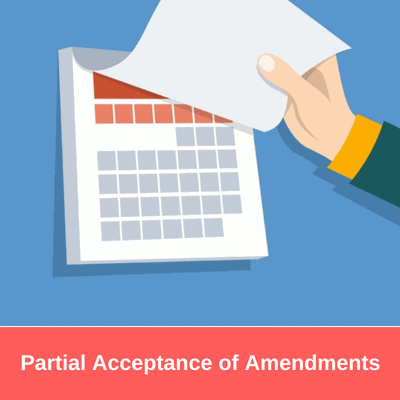According to the letter of credit rules, the beneficiary should communicate its acceptance of the amendment to the bank that advised such amendment.
The beneficiary should give notification of acceptance or notification of rejection of an amendment.
If the beneficiary fails to give such notification of acceptance, a presentation that complies with the credit and to any not yet accepted amendment will be deemed to be notification of acceptance by the beneficiary of such amendment.
As of that moment the credit will be amended.
But, what happens if a beneficiary of a letter of credit partially accepts an amendment?
Real Life Example: Kuldeep is Asking This Question From India

Question: We have opened a confirmed 100% irrevocable lc at sight to our supplier in China on 28.January.2014 from our local bank in India.
Just after the issuance of the letter of credit our supplier contacted us for demanding more shipment period.
We amend the letter of credit by extending the latest date of shipment and expiry date.
One month later, our supplier, who is the beneficiary of the commercial letter of credit, got in touch with us again and requested another extension of the shipment period. We agreed and amended the letter of credit second time.
However the exporter again demanded from us more time to shipment. This time we add additional conditions to our amendment in addition to extension of latest date of shipment and date of expiry of the credit.
The seller accepted some clauses in the 3rd amendment and rejected others.
We have warned our supplier that partial acceptance of amendments is not allowed according to the UCP 600.
We told him that partial acceptance of amendments means the rejection of that particular amendment altogether. Our supplier denied our requests and insisted on his stance.
What we would like to know is that whether our letter of credit expired or not? You can find latest date of shipment dates and expiry dates corresponding to our amendments on above figure.
Answer: Partial acceptance of an amendment is not allowed and will be deemed to be notification of rejection of the amendment.
The beneficiary neither accepted the 3rd amendment nor they have made any shipment before the latest date of shipment or presented the documents before the expiry date.
The letter of credit has expired on 21.June.2014.


